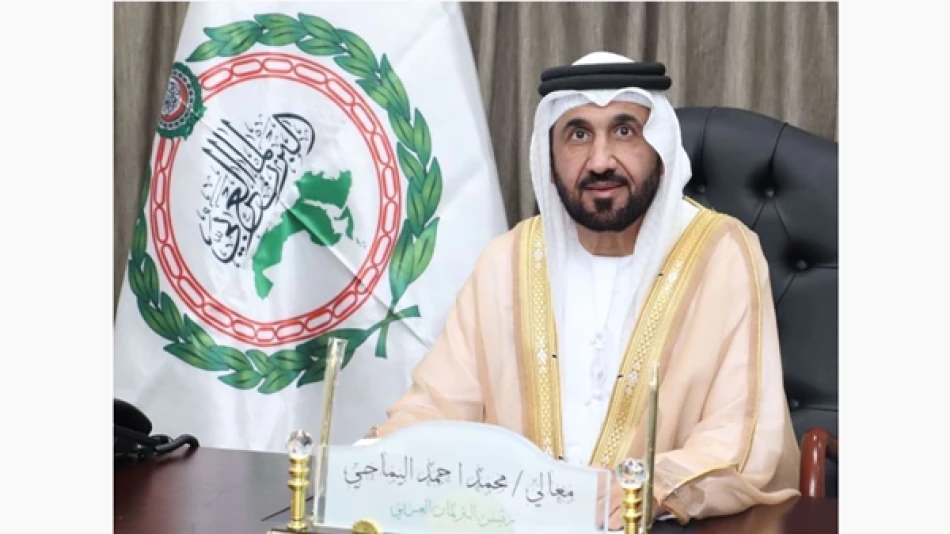
Arab Parliament Speaker Praises Fujairah Ruler's Remarkable Achievements
Arab Parliament Chief Celebrates 51 Years of Fujairah Leadership in UAE Development Success Story
The Arab Parliament has formally congratulated Sheikh Hamad bin Mohammed Al Sharqi, ruler of Fujairah, on his 51st anniversary as leader of the UAE emirate, highlighting how his governance model exemplifies the broader transformation that has positioned the Gulf nation as a regional development powerhouse. The milestone underscores the continuity of leadership that has driven the UAE's evolution from a collection of small emirates into a global economic hub.
Five Decades of Strategic Governance
Mohammed bin Ahmed Al Yamahi, President of the Arab Parliament, praised Sheikh Hamad's leadership philosophy, which prioritizes human development as the foundation of economic progress. This approach mirrors the founding principles established by the late Sheikh Zayed bin Sultan Al Nahyan, the UAE's founding father, whose vision of investing in people before infrastructure has become a hallmark of Emirati governance.
The 51-year tenure represents remarkable stability in a region often characterized by political volatility. Such longevity in leadership has allowed Fujairah to pursue consistent long-term development strategies, contributing to the UAE's reputation for predictable business environments that attract international investment.
Fujairah's Strategic Position in UAE Growth
Economic Transformation
Under Sheikh Hamad's leadership, Fujairah has evolved from a traditional fishing and agriculture-based economy into a strategic logistics and energy hub. The emirate's location on the Gulf of Oman, outside the Strait of Hormuz, has made it increasingly valuable for oil storage and shipping operations, particularly during periods of regional tension.
Next-Generation Leadership
The Arab Parliament specifically acknowledged the role of Sheikh Mohammed bin Hamad Al Sharqi, Crown Prince of Fujairah, in driving sustainable development initiatives. This generational transition reflects the UAE's broader approach to governance, where established leaders work alongside younger officials to ensure policy continuity while embracing innovation.
Regional Significance and Global Implications
The congratulatory message from the Arab Parliament carries weight beyond ceremonial protocol. It signals recognition of the UAE model as a template for development in the Arab world, where many nations struggle with economic diversification and political stability.
For international investors and businesses, such milestone celebrations reinforce confidence in the UAE's institutional stability. The fact that Fujairah has maintained consistent leadership for over five decades while participating in the broader UAE federation demonstrates the country's unique ability to balance local autonomy with national coordination.
Implications for UAE's Future Strategy
The emphasis on human-centered development mentioned in the Arab Parliament's statement aligns with the UAE's Vision 2071, which aims to make the country the world's best nation by its centennial. This philosophy of prioritizing education, healthcare, and citizen welfare over purely economic metrics has become increasingly relevant as Gulf nations seek to reduce their dependence on oil revenues.
The recognition also comes as the UAE continues to expand its regional influence through economic partnerships, diplomatic initiatives, and infrastructure investments across the Middle East and Africa. Long-serving leaders like Sheikh Hamad provide institutional memory and relationship networks that prove valuable in these strategic endeavors.
As the UAE approaches its own 53rd National Day in December, such celebrations of individual emirate achievements highlight the federal system's success in maintaining local identity while pursuing national objectives—a balance that continues to attract global attention as a model for regional integration.
Most Viewed News

 Layla Al Mansoori
Layla Al Mansoori






